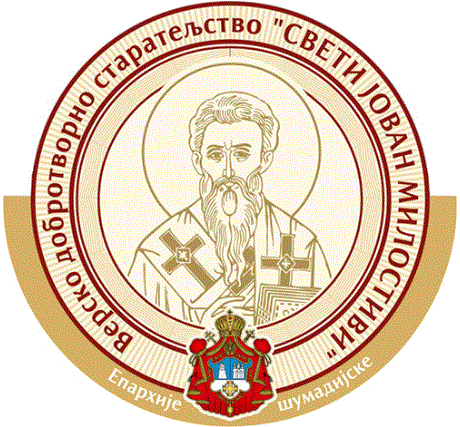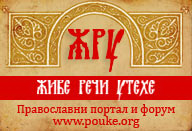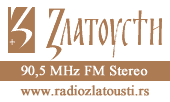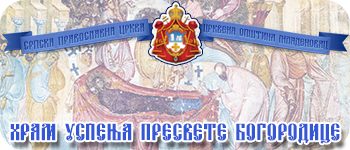As we all know well, the globalization process takes many different forms, both nice and ugly. After 50 years of communist regime and 10 years of the ethnical clashes and disintegration of Yugoslavia, the Serbian society had been expecting the year 2000 with a great hope and in such a mood entered the modern processes of integrations. As many people, some of which being scientists and politicians, were astonished by a swift and entire clash of communism during the 90-es, so were they by the difficulties associated with so called post-communist societies during their transition towards modern and developed societies of the West. One of the key problems was a demand and need for accelerated changes. What took ages to get into shape in the West is now expected to give effect in a very short while. The consequences of this disbalance of social clocks are enormous. It is difficult, sometimes even impossible to endure and make such changes in a short period of time.
The processes of integrations and globalization are being understood by many as the process that will bring a higher standard of living on their own, but it is the opposite what is actually happening. The dreams do not come true. The hopes are constantly being postponed into yet further future while the life is getting harder. A promising face of a nice, happy and prosperous future is being outweighed by new poverties and hopelessness. The old totalitarian regimes and injustice now continue existing in new forms. This is the level at which, I would dare to say, the Serbian society exists today. This objectively hard social situation has a diverse impact on people. Yet again I would dare to stress just the two reactions, out of many, that bring light to the actual problems. The first one is to be marked as negative, while the other one as positive. Firstly, the negative reaction: the modern social processes, in a brutal way, segregate people to a small number of winners and a big number of losers. The losers, in other words those who feel about themselves as betrayed in their hopes, become impatient, extreme, and tomorrow maybe even violent in their rejection of all the European processes and globalization. They argue that Europe comes to us in a form of all possible and unthinkable perversions never seen before, followed by, according to their understanding, abuses of the human freedom and human nature. The other, positive reaction is embodied in a soberness of those who understood that nobody will grant us anything and that it is only by a patient labour that something can be achieved in life. Dreams about a taken for granted high standard in Serbia has definitely crumbled, and it seems to me not only in Serbia. And that is good, for that leads us now into the issue of the European values which I would like to approach to as an orthodox priest.
The search for a European Union’s soul has been lasting for as long as the Union itself, and there is more and more uncertainty about the hope to find it and thereby agree what the basic European values to be defended when imperilled are, not only because they are European, ours, and as such to be fought for, but rather because of their universal character. We, Christians, think that the European soul used to be Christian and that only with such it has the future. However, the very same Europe has, for quite some centuries now, been regarding it as an obstacle. Europe would be more open, more quiet and more tolerant without Christianity, if relying exclusively on ratio and human nature. Such an attitude also finds support in justified and very concrete historical reasons making the European Christian churches responsible for the creation of a modern society that turned against them more than once during the modern history. Christianity, dispersed and crumbled, can hardly response to the Evangelical saying “Doctor, heal yourself”. Divided Christianity does not stand as an an example but a scandal and sin before the world and Europe. This is the fact. Another fact is that the European continent today numbers less Christians than some other continents and it is needless to talk about how large is the number of those European Christians who actively and ecclesiastically practice their faith. Europe is capable today of getting people together in the banks, shopping centres, football stadiums, night clubs, while the churches witness less and less people. The responsibility for such a situation, it if is to be found in accordance with their faith, Christians can only search in their selves. If we had been better, if our faith had been and is more religious but less political, national or of some other nature, the situation itself would have been different.
The search for the European soul goes on in the atmosphere and need for a new synthesis between the Christian and illuminating Europe. The latter has had its historical opportunity to show off and its results are not small, indeed. But all the same, on the two occasions during the 20th century it brought the world to the edge of catastrophe. These old arguments should come to an end as all the social factors, united in love towards mankind and Europe, could contribute to the new synthesis. As I see it, the contribution of Christianity lies in the very pleading for the values as follows:
All the Christian, Evangelical values which we all know well, ranging from the Godlike human being to the love towards enemies, could be comprised into one idea – goodness, αγαθότητα. Then, let that good, evangelical man, as long as he exists, live among us. Do not sneer at him for he is already a mockery for the world, because he cannot orient himself in it, in our industry, politics, in the relations of the might, in the laws of show business, violation, hatred and so on. Everybody in that world wants to be mighty, wealthy, loud, famous, educated, but very few are quiet, humble, retired, in a word – good. And this good, Evangelical man, which I firmly want to believe in, is the soul of Europe. And when Europe begins, if at all, to display this man as an example, only then will it acquire respect of other world’s cultures and yet again will become a holder and beacon of essential, all-human values. Meanwhile it remains the first task of us Christians.
[1] Излагање са скупа представника народних (демохришћанских) партија Европског парламента одржаног 8. и 9. децембра 2010. у Истанбулу (Турска) под покровитељством Његове Светости Васељенског Патријарха Вартоломеја

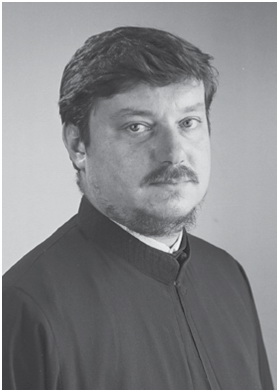 EPP Group Delegation (European Parliament) to H.H.
EPP Group Delegation (European Parliament) to H.H. 
